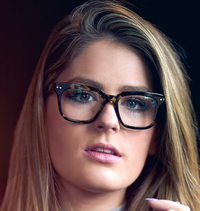Politics
Peace that comes from heaven
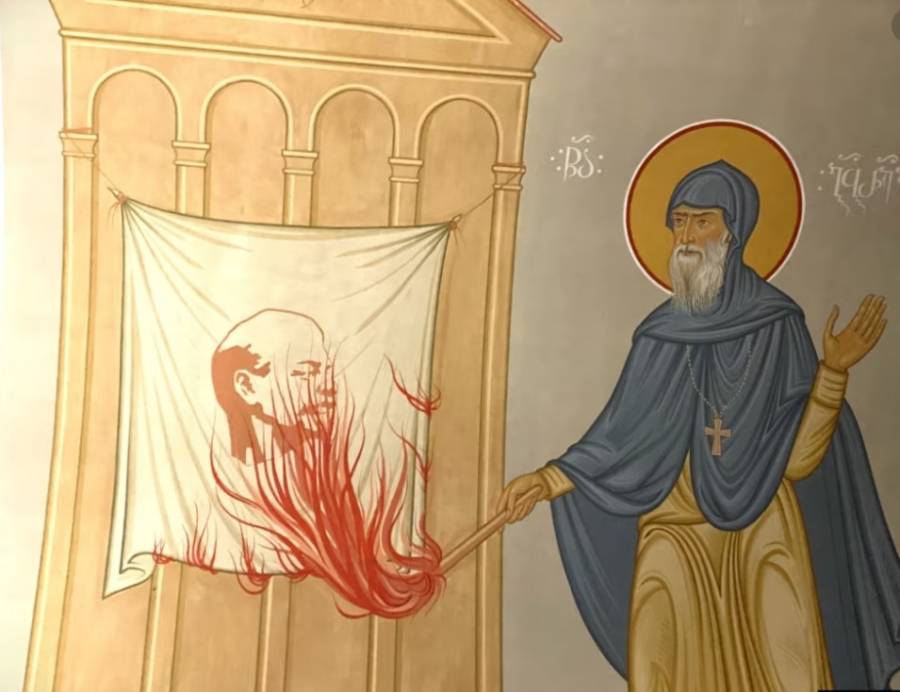
By Taras Dmytryk, Lviv, Ukraine
When we speak of the peace that comes down from heaven, we consider this peace to be the grace of God, given to us by God himself. “My peace I give to you” (John 14:27), says Christ.
However, how can we understand other words of Christ: “Do not think that I have come to bring peace. I have not brought peace, but a sword” (Matthew 10:34)?
In my personal conviction, these words refer primarily to the disciples of Christ who, under the cover of his name and teachings, instead of peace, bring a sword into the world, that is, wars, blood, murders.
In recent decades, we have observed how the regime of the Russian dictator Putin, under the cover of the ideology of the “Russian world”, actively promoted by the Patriarch of Moscow Kirill, regularly carries out military aggression against neighboring states. And it committed its largest and bloodiest aggressions precisely against two Orthodox Christian countries: in 2008 against Georgia, in 2014 against Ukraine, and even later in 2022 it began a large-scale military invasion of Russian troops into the territory of Ukraine. And for the third year, Ukrainians have been living under constant shelling, hundreds of thousands of soldiers and civilians have died, including 548 children.
How did the Russian Church start war propaganda and justifying massacres in the name of the illusory idea of the “Russian world”?
The beginning of this story lies in the distant 1943, when Joseph Stalin, having exterminated hundreds of real clergy (bishops, priests, deacons) – martyrs and confessors, created an appearance, a phantom of the Church, putting at its head clergy-collaborators obedient to the communist regime. Later, these clergymen-collaborators hid behind the ideas of the struggle for peace and participated in international meetings, where they promoted ideas beneficial to the Soviet government. It was at that time that a sad joke appeared in the Church that there would be no Third World War, but that there would be such a struggle for peace that not a stone would be left on stone. Metropolitan Nikodym Rotov, the spiritual father and head of the current Patriarch of Moscow Kirill Gundyaev, was also a member of this group of clergymen-collaborators. But if Nikodym Rotov acted under the cover of the ideas of the struggle for peace, Kirill Gundyaev today openly preaches the idea of a “holy war”, “all the soldiers who died in this war go to heaven”, etc. The Primate of the Orthodox Church of Finland, Leo, has openly said about the current state of Russian Orthodoxy:
“The family of Orthodox Churches is currently going through a crisis and is strongly divided. Our modern era has given rise to a new totalitarian myth and ideology under the guise of Orthodoxy, which in reality do not represent Christianity at all.
A few years ago, I still recognized some remnants of Orthodoxy within the Moscow Patriarchate, but they have now been replaced by a mixture of Russian messianism, Orthodox fascism and ethnophilia. The latter heresy mentioned was condemned by the Council of Constantinople 152 years ago.
Today, Russia considers itself the only force of Good in the world, whose task is to oppose the West that has sunk into Evil. This, in turn, represents the Manichean heresy, in which the world is divided into opposites: light and darkness, Good and Evil, etc.,” Metropolitan Leo stressed before the Council of the Church of Finland. (Orthodox Times)
So what should our Churches do to avoid the state in which the Moscow Patriarchate currently finds itself? Indeed, what our group EIIR-Synaxis has been doing for more than 50 years, the aim of which is to create friendly relations between representatives of different Christian Churches, in listening to each other and respecting others in their diversity.
This war could not have taken place if the Moscow Patriarchate had respected the right of others to be different. Mordvin ethnic Vladimir Gundyaev became Russian Patriarch Kirill and he feels like a Russian. This is the right of his personal choice. But why does he not respect the right of Ukrainians or Georgians to remain themselves? Today, Russia attacks Ukraine and other states of the post-Soviet space on three fronts: the Russian army, the Moscow Patriarchate and the propaganda of the ideas of the “Russian world”, born in the Russian Orthodox Church in the 1990s.
It should be noted that the Kremlin greatly overestimated the influence of the ideas of the “Russian world”, from which the inhabitants of the eastern regions of Ukraine quickly recovered, who saw that the “Russian world” is not literature, music and fine arts, but above all it is the bombings, especially also the churches and monasteries of the Moscow Patriarchate, the murders of civilians, the repression of the civilian population in the occupied territories, which they allegedly came to “liberate”. The Russian army showed its true face in Ukraine: executions of civilians, robberies and looting. In particular, during the short occupation, Russian soldiers ransacked the Roman Catholic seminary in Vorzel near Kiev, where they even stole washing machines and toilets and took them home through Belarus on their tanks. Abuse of prisoners of war, abduction of children and violations of all possible rules of war prompted the International Tribunal in The Hague to issue an arrest warrant for war criminals Vladimir Putin, Sergei Shoigu, Valery Gerasimov and others.
The war waged by Russia against Ukraine left behind a great collective trauma in Ukrainian society. This trauma will be healed for at least three generations:
– The first generation who directly survived the war and were physically injured or hurt;
– The second generation is the children of people who survived the war;
– The third generation – grandchildren, who will learn the truth from their parents and grandparents about the traumas experienced during the war.
Today, Ukrainian society is making its existential choice in favor of European values, rapidly freeing itself from pro-Russian influences. First of all, Ukraine is rapidly freeing itself from the influence of the Moscow Patriarchate, which preaches the “Russian world” instead of preaching the peace of Christ. This collective post-war trauma will contribute to the formation of its own identity, distinct from the Russian one.
Post-war Europe managed to establish a dialogue after the Second World War, aimed at promoting peace on the European continent. The Christian Churches did not remain aloof from these processes. As early as 1970, the Greek Orthodox Metropolitan Emilianos Timiadis and the Spanish Catholic priest Julián García Hernando initiated regular international interfaith meetings between representatives of various Christian Churches. And our French-speaking ecumenical group has been nourishing the idea of reconciliation and restoration of the unity of the Church for more than 50 years. It is hard work that requires a lot of effort from us, but we are here today so that no one will ever dare to call for war in the name of Christ.
N.B.: Sunday, July 7, 24, within the framework of the 39th “SYNAXE” MEETING, “Blessed are the peacemakers” (Mt. 5:9). Brâncoveanu Monastery, Romania (July 3-9, 2024), A round table took place on the trauma of the war in Ukraine. For Taras Dmytryk, the peace that comes from above is a grace given by God. But how can we put the beatitude of peace in connection with this other word of Jesus: “do not think that I have come to bring peace,” he asks? The ideology of the “Russian World” justifies these wars and Patriarch Kirill of the Russian Orthodox Church openly defends the idea of “holy war,” with Russia considering itself the force of good against the darkness of the West. (On the “Russian World”, see: https://desk-russie.eu/2024/05/12/le-monde-russe.html?amp=1).
Politics
‘Shaping tomorrow and navigating uncertainty: the future of the euro area’ – speech by the Eurogroup President, Paschal Donohoe, at Centre for Financial Studies, Goethe University
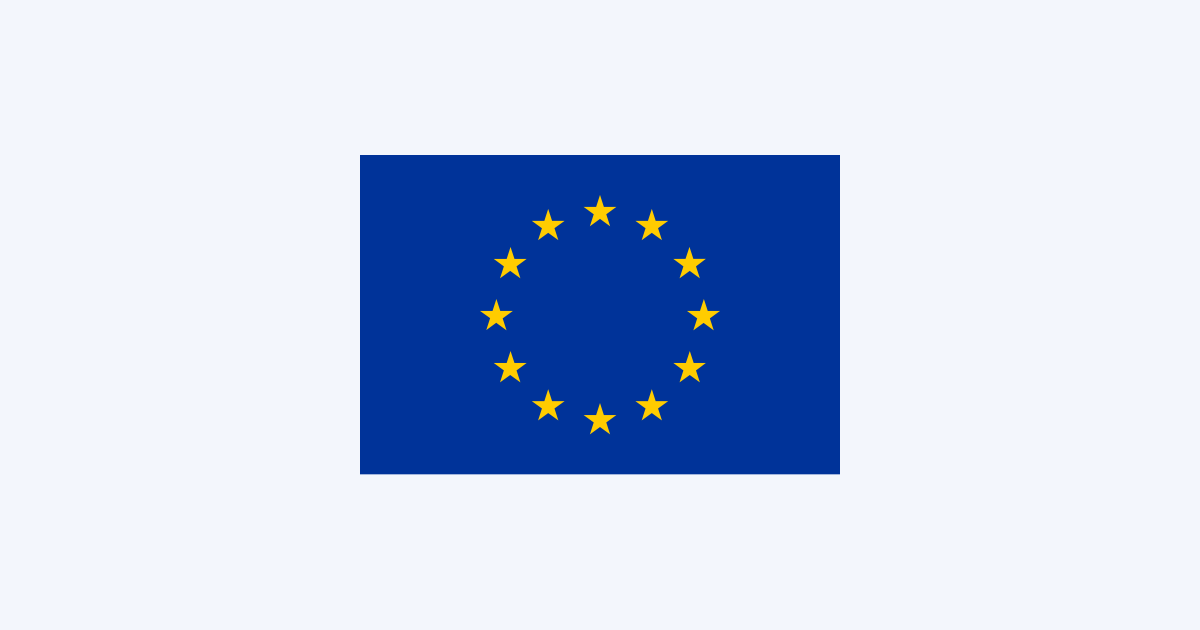

© FRVS+MPCP 2022. The European Times® News is registered as an EU Trademark. All rights reserved. The European Times® and the logo of The European Times® are EU trademarks registered by FRVS+MPCP.
Members/Partners of

About Us
Popular Category
DISCLAIMER OPINIONS: The opinions of the authors or reproduced in the articles are the ones of those stating them and it is their own responsibility. Should you find any incorrections you can always contact the newsdesk to seek a correction or right of replay.
DISCLAIMER TRANSLATIONS: All articles in this site are published in English. The translated versions are done through an automated process known as neural translations. If in doubt, always refer to the original article. Thank you for understanding.
DISCLAIMER PHOTOS: We mostly used photos images that are readily available online, from free sources, or from the people promoting the news. If by any chance it happens that we have used one of your copyrighted photos, please do not hesitate to contact us and we will take it down without question. We do not make profits as this is a not for profit project to give voice to the voiceless while giving them a platform to be informed also of general news, and it is completely free.
Editor Picks
Politics
Nature, climate, and circular economy projects emerge as winners at the 2025 LIFE Awards
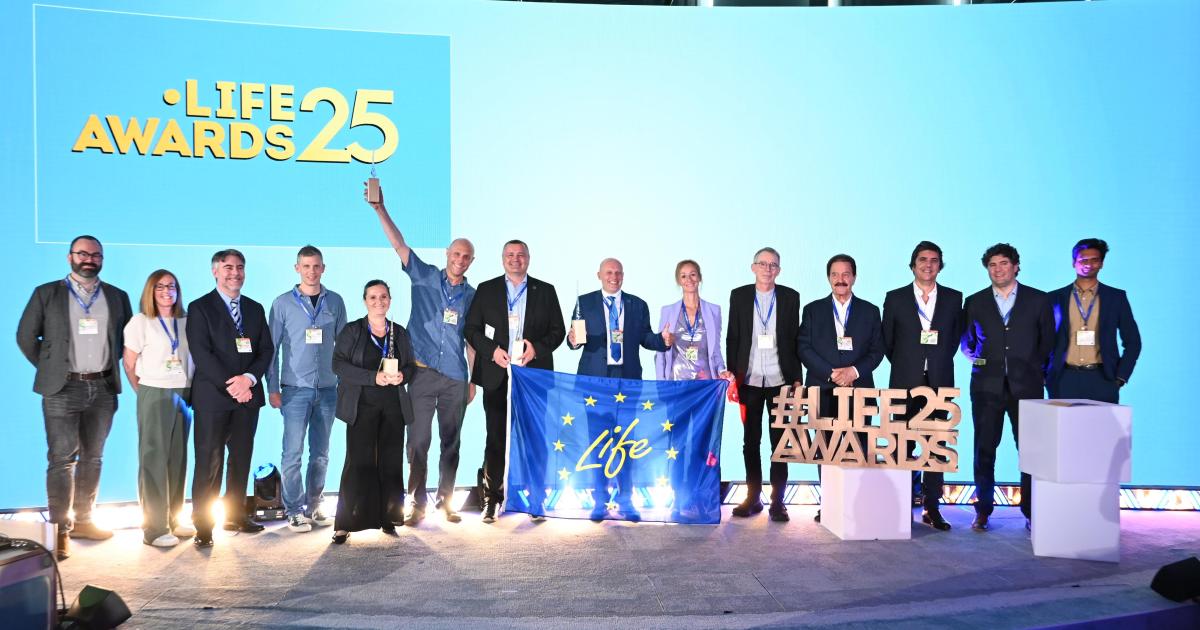
Three outstanding LIFE projects were awarded the LIFE Awards 2025, held as part of European Green Week to recognise excellence in nature conservation, circularity and climate resilience.
The winners were selected from nine finalists in three categories: nature, circular economy and quality of life, and climate action. Together, they represent some of the most creative and impactful initiatives helping to create a greener Europe.
The LIFE Award for Nature went to LIFE Lynx, which brought together conservationists, hunters and local communities to successfully reverse the decline of the Alpine Lynx in the Dinaric Alps. The runners-up in this category were LIFEraisedbogs and LIFE living Natura 2000.
LIFE Lynx also won the LIFE Citizens’ Prize, awarded to the project that received the most public support in an online vote.
The winner of the LIFE Award for Circular Economy and Quality of Life was LIFE POPWAT, which piloted a new nature-based technology to remove hazardous man-made chemicals from contaminated water in Czechia and Poland. The runners-up in this category were LIFE EMERALD and LIFE LANDSCAPE FIRE.
The winner of the LIFE Award for Climate Action was LIFE DESERT-ADAPT, a project combating desertification improving soil quality, improved water retention capacity and improved ecosystem resilience in Italy, Spain and Portugal. The runners-up in this category were NATURAL HVACR 4 LIFE and LIFE Natur’Adapt.
This year a special category was introduced – “Rising Star Recognition” – for projects making a remarkable contribution to the circular economy. This special Award went to LIFE RE-ZIP, a Danish project which aims to replace thousands of tonnes of commercial packaging waste with more environmentally friendly reusable eCommerce packaging. When the project ends in 2026, more than 120 million reusable packages will be in circulation, with 17,000 tonnes of cardboard and plastic waste saved and more than 300 jobs created.
About the LIFE Awards
The LIFE Awards celebrate the most impactful projects implemented under the LIFE Programme each year. Since 1992, LIFE has funded thousands of projects focused on environmental protection and climate action.
The LIFE Awards 2025 were awarded by a jury of experts including Konstantinos Bakoyannis, Chair of the Commission for the Environment, Climate change and Energy (ENVE) of the European Committee of the Regions; Sara Segantin, a writer, journalist, science storyteller and EU Climate Pact Ambassador and Hans Bruyninckx, Professor of Environmental Governance at the University of Antwerp, former European Environment Agency (EEA) Director, and Member of the International Resource Panel.
The jury commended the winners for the immediate and long-term environmental, economic and social improvements of their projects. They recognised their innovation, scale-up potential, and relevance to the EU’s decarbonisation, circularity and biodiversity goals.
Full list of LIFE Awards 2025 finalists
Nature Protection
LIFE Lynx: bringing together conservationists, hunters and local communities to successfully reverse the decline of the Alpine Lynx in Slovenia and Croatia.
LIFEraisedbogs: restoring over 900 hectares of rare raised peat bogs across 10 different sites in Denmark.
LIFE living Natura 2000: campaigning for understanding, acceptance and appreciation of the Natura 2000 network in Germany.
Circular Economy and Quality of Life
LIFE EMERALD: reducing air pollution and improving citizens’ health in Ireland.
LIFE POPWAT: piloting new technology to remove hazardous man-made chemicals from contaminated water in Czechia and Poland.
LIFE LANDSCAPE FIRE: combining traditional and modern fire prevention techniques to reduce large-scale forest fires in Portugal and Spain.
Climate Action
LIFE DESERT-ADAPT: tackling desertification by improving soil health, enhancing water retention, and building ecosystem resilience in Italy, Spain and Portugal.
NATURAL HVACR 4 LIFE: developing viable natural air-conditioning systems to replace climate-damaging F-gases (fluorinated greenhouse gases) in Belgium, Germany, France and Czechia.
LIFE Natur’Adapt: promoting climate change adaptation tools among 1 300 managers at 21 natural protected sites across France.
About the LIFE Programme
The LIFE Programme is the EU’s funding instrument for the environment and climate action. It has been bringing green ideas to life since 1992 and, to date, has co-financed over 6,000 projects across the EU and in third countries. For the 2021-2027 period, the European Commission has increased LIFE Programme funding by almost 60%, up to €5.4 billion, and included the clean energy transition sub-programme.
The recently-announced work programme for the implementation of the LIFE Programme in 2025-2027 established an overall budget of €2.3 billion for projects tackling circular economy, zero pollution, nature and biodiversity, climate mitigation and adaptation, and clean energy. The LIFE Programme is managed by the European Climate, Infrastructure and Environment Executive Agency (CINEA).
For further details on the LIFE Awards 2025, please visit the following link.
Politics
Eurojust supports successful operation against human traffickers
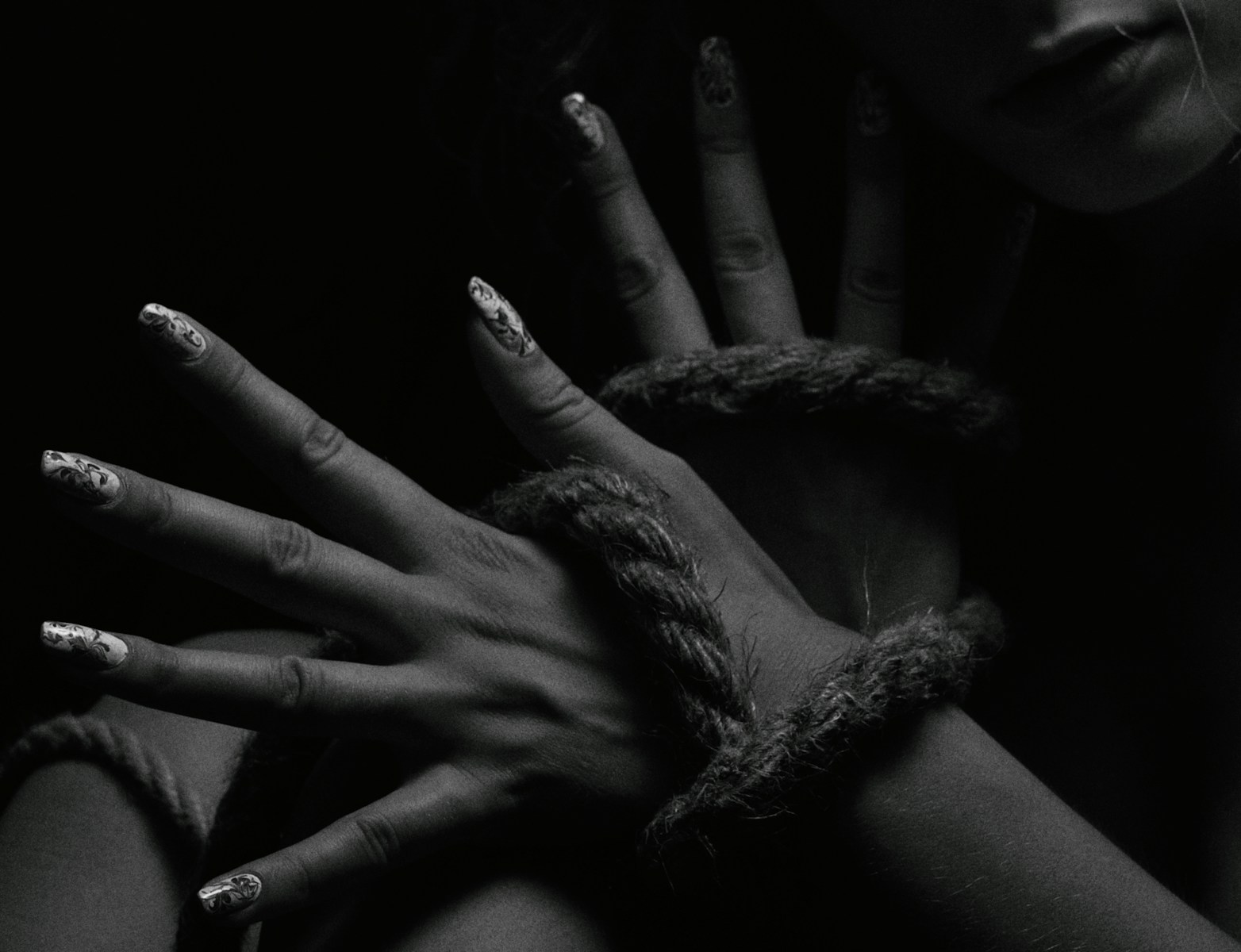
Authorities have tracked down and dismantled a human trafficking network operating in Switzerland. The criminal group recruited young vulnerable women in Romania for sexual exploitation. The close cooperation between investigators from both countries, supported by Eurojust and Europol, culminated in an action day on 3 June, during which 18 suspects were arrested.
The criminal group targeted individuals from disadvantaged communities in Romania. The perpetrators approached their victims on social media, luring them with false romantic promises or offers for them to perform sex work abroad under favourable conditions. Once the victims accepted these offers, they were taken abroad to provide sexual services on escort websites and in rented flats. They were kept under constant surveillance by the criminal group and subjected to appalling conditions, working long hours in degrading and unsafe circumstances. The victims were expected to work continuously, regardless of their mental or physical state. Even visibly pregnant women were forced to work without rest.
Investigations into the group uncovered a large-scale network that had been operating across Europe for over seven years. In 2022, its members moved to Switzerland to continue their activities in several Swiss German-speaking cities, particularly Zurich. The suspected leader of the group started to recruit new members, setting up his own criminal school, where he taught techniques enslaving and exploiting victims. In some cases, victims were traded between members in exchange for money or used as stakes in gambling.
A joint action day to dismantle the criminal group took place on 3 June. Authorities arrested 13 suspects in Romania and five in Switzerland. The alleged victims were brought to safety and given support from a counselling service specialising in human trafficking. In addition to targeting the members in Switzerland, the investigations also focused on individuals in Romania who provided logistical support and laundered the proceeds from the criminal activities.
The successful operation was made possible through close cooperation between Romanian and Swiss authorities under the coordination of Eurojust and Europol. A joint investigation team, set up and funded by Eurojust, ensured the authorities could work together quickly and efficiently. Europol supported the national authorities throughout the investigation by facilitating the exchange of critical intelligence and providing expert analytical support, including the preparation of link charts on the organised crime group. On the action day, Europol provided remote assistance to investigators by cross-checking operational data in real time.
The following authorities carried out the operation:
- Romania: Prosecutor’s Office attached to the High Court of Cassation and Justice – Directorate for Investigating Organised Crime and Terrorism, Bacau Territorial Service; Police Brigade for Combating Organised Crime Iași, Police Service for Combating Organised Crime Neamț; Neamț and Bacău County Gendarmerie Inspectorates; Mobile Gendarmerie Unit Bacău.
- Switzerland: Public Prosecutor’s Office of the canton of Zurich; Zurich City Police
Authorities have tracked down and dismantled a human trafficking network operating in Switzerland. The criminal group recruited young vulnerable women in Romania for sexual exploitation. The close cooperation between investigators from both countries, supported by Eurojust and Europol, culminated in an action day on 3 June, during which 17 suspects were identified.
Source link
-
EU & the World2 days ago
Aurora Borealis Forecast: Where & When to See the Northern Lights Tonight
-
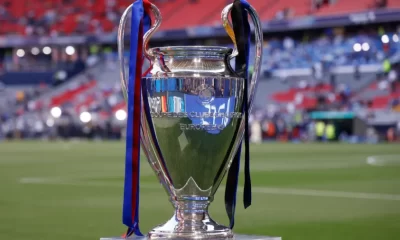
 Sports4 days ago
Sports4 days agoChampions League Final 2024-2025: PSG-Inter, official lineups
-
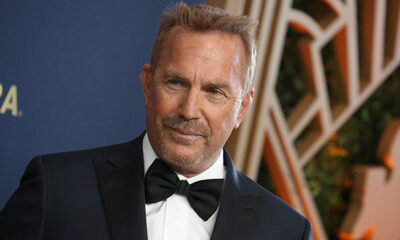
 EU & the World6 days ago
EU & the World6 days agoWhat Is Kevin Costner’s Net Worth? How Much the Actor Makes
-

 EU & the World6 days ago
EU & the World6 days agoTodd Chrisley’s Kids: Everything To Know About The 5 Children He Shares With Julie
-
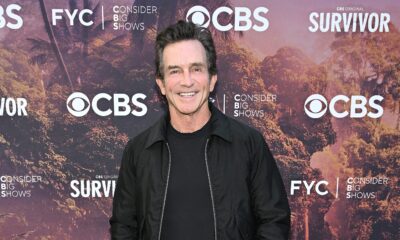
 EU & the World6 days ago
EU & the World6 days ago‘Survivor’ Season 50 Cast: See Which Stars Are Competing
-
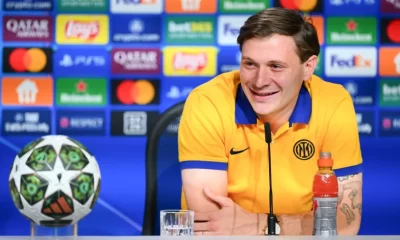
 Sports5 days ago
Sports5 days agoPSG-Inter, Nicolò Barella jokes about Gianluigi Donnarumma
-
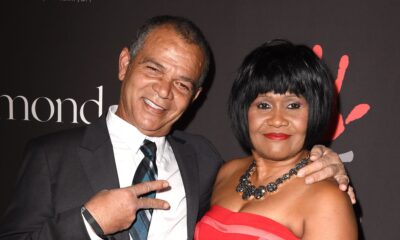
 EU & the World3 days ago
EU & the World3 days agoRihanna’s Parents: About Her Late Dad Ronald Fenty & Mom Monica Braithwaite
-

 EU & the World5 days ago
EU & the World5 days agoHailey Bieber’s Net Worth: How Much Money the Rhode Founder Makes


